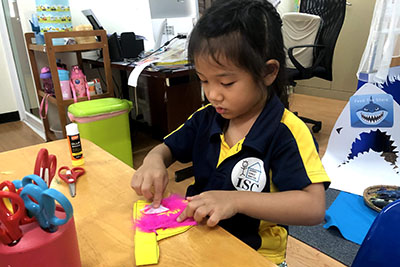Early Years
PRIME AREAS OF LEARNING
Personal, social and emotional development is an important part of everything we do in the early years. It is about feeling good about ourselves, expressing our feelings in the right way and treating others with kindness and respect. It is also about developing a positive attitude towards learning and being independent and self motivated. In the early years, we promote personal, social and emotional development through our daily routines, as well as a variety of activities such as circle time, role play, games and sharing.
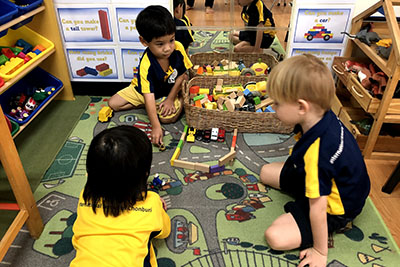
This area of learning focuses on using communication, speaking and listening in different situations and for different purposes. We share, discuss and enjoy a wide range of fiction and non-fiction books. We place a strong emphasis on listening and attention, understanding and speaking. We plan opportunities for children to communicate thoughts, ideas and feelings in all curriculum areas.
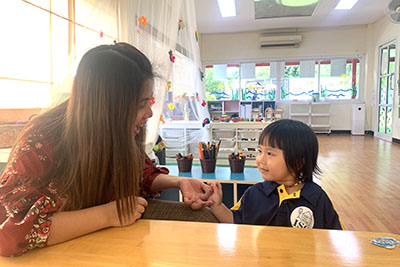
Physical development is about improving skills of co-ordination, control, manipulation and movement both inside and outside the classroom. It helps children to gain confidence in what they can do and to take safe risks when meeting new challenges. It also gives the children the opportunity to feel the positive benefits of being healthy and active.
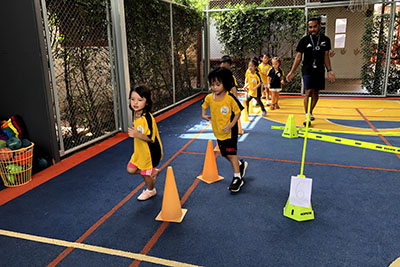
SPECIFIC AREAS OF LEARNING
The specific areas include essential skills and knowledge. They grow out of the prime areas, and provide an important context for learning. The specific areas are:
We expose children to a range of rich literature. We use Jolly Phonics throughout the school to develop children’s phonetic knowledge. In Early Years 2 this begins with sound discrimination through music, rhyme and song. Listening to and distinguishing different sounds, such as the different sounds of musical instruments, leads to learning letters and their sounds. This is an important skill for reading and writing. During Early Years 3, children have a daily phonics session and we encourage children to read and write using their phonetic knowledge at all times.
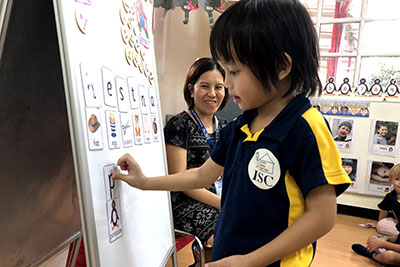
This area of learning includes; counting, sorting, matching, finding patterns, making connections and working with numbers, shapes and measures. We develop mathematical understanding through stories, songs, games and imaginative play so that children enjoy using and experimenting with numbers, shapes and measures. We look at counting in a variety of ways, learning the names of numerals, putting numbers in the right order and early addition and subtraction. In all Early Years classrooms, we stress the practical, everyday use of counting and calculating through play activities such as shopping or sharing out food. Similarly, we explore the properties of shape through model making and construction toys.
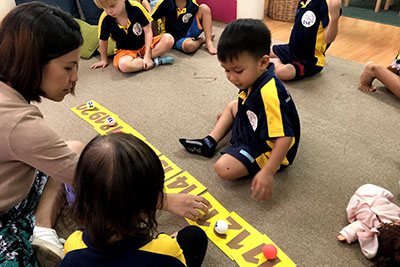
In this area of learning children are developing the important knowledge, skills and understanding that help them to make sense of the world. This forms the foundation for later work in science, design and technology, history, geography and information and communication technology (ICT). We place great emphasis on experiences that encourage exploration, observation, prediction, decision making and discussion.
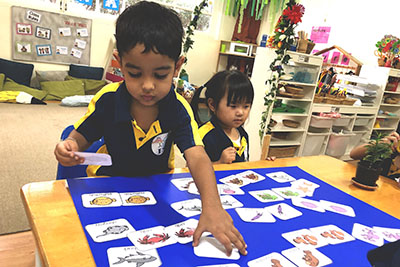
This area of learning includes; art, dance, music, role play and imaginative play. We encourage children to be creative in all areas of learning. As we see creativity as vital for successful learning our activities include painting, drawing, model making and collage, and we encourage children to experiment with tools and materials and be as independent as possible. We change our role play areas regularly into, for example a shoe or bakery shop, a space station or a jungle to encourage imaginative play. Music and singing form part of our daily routines.
